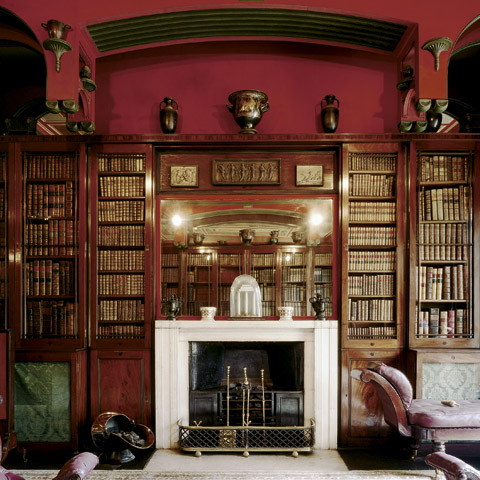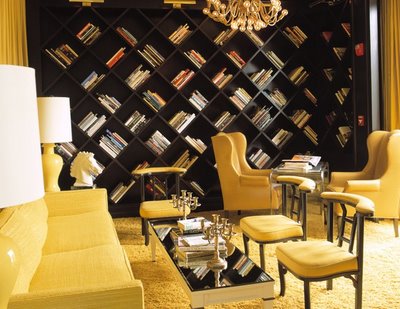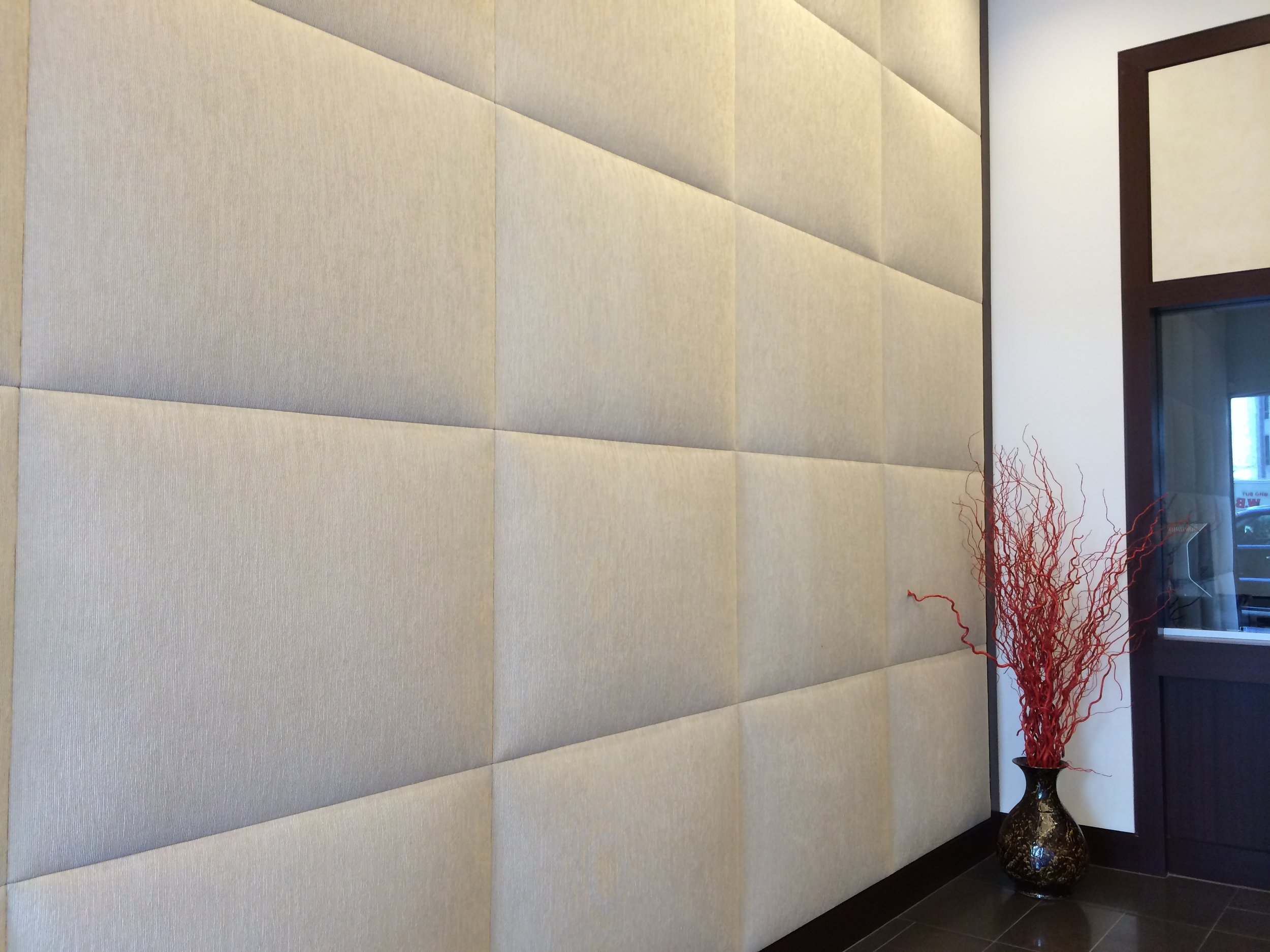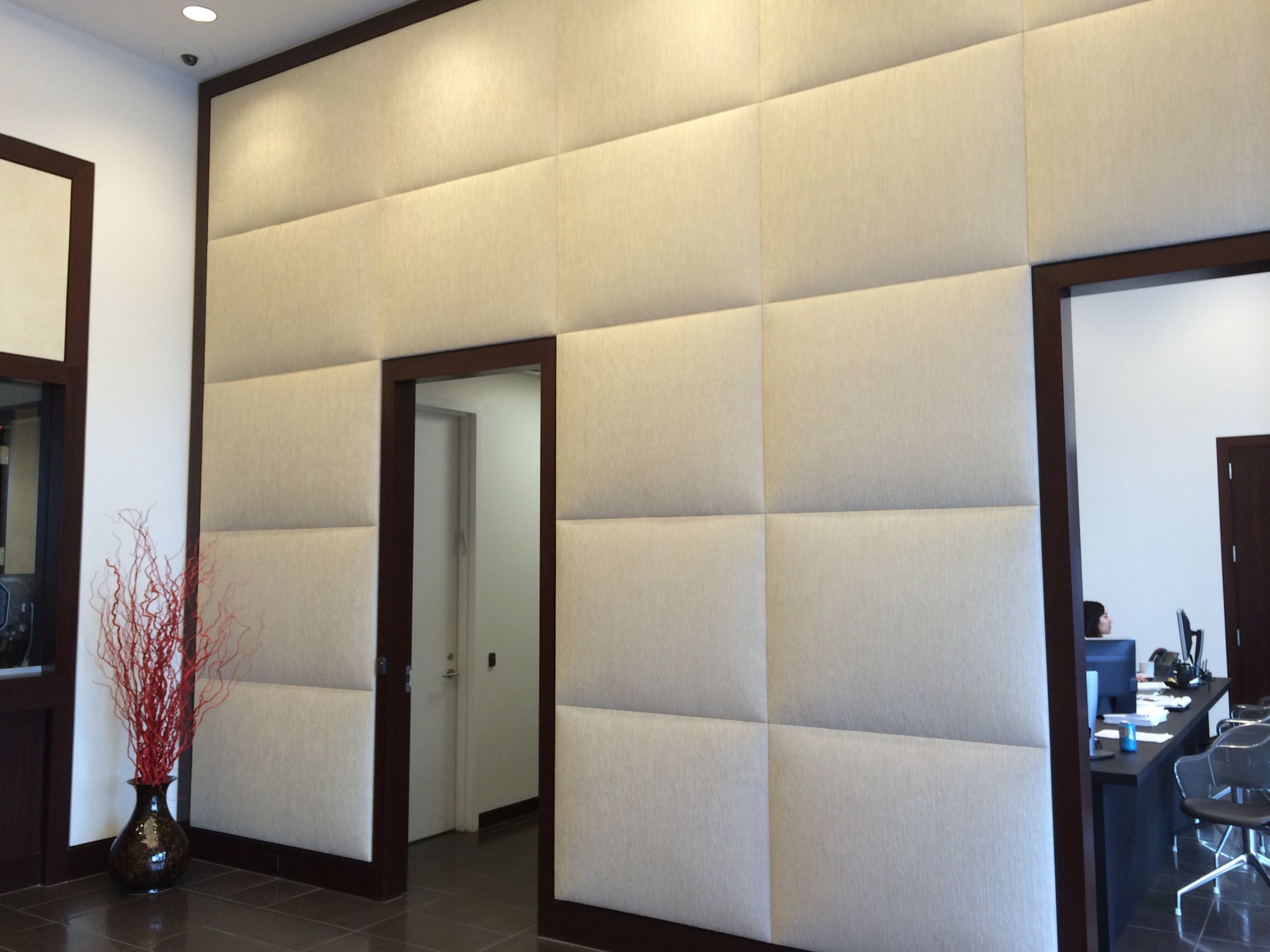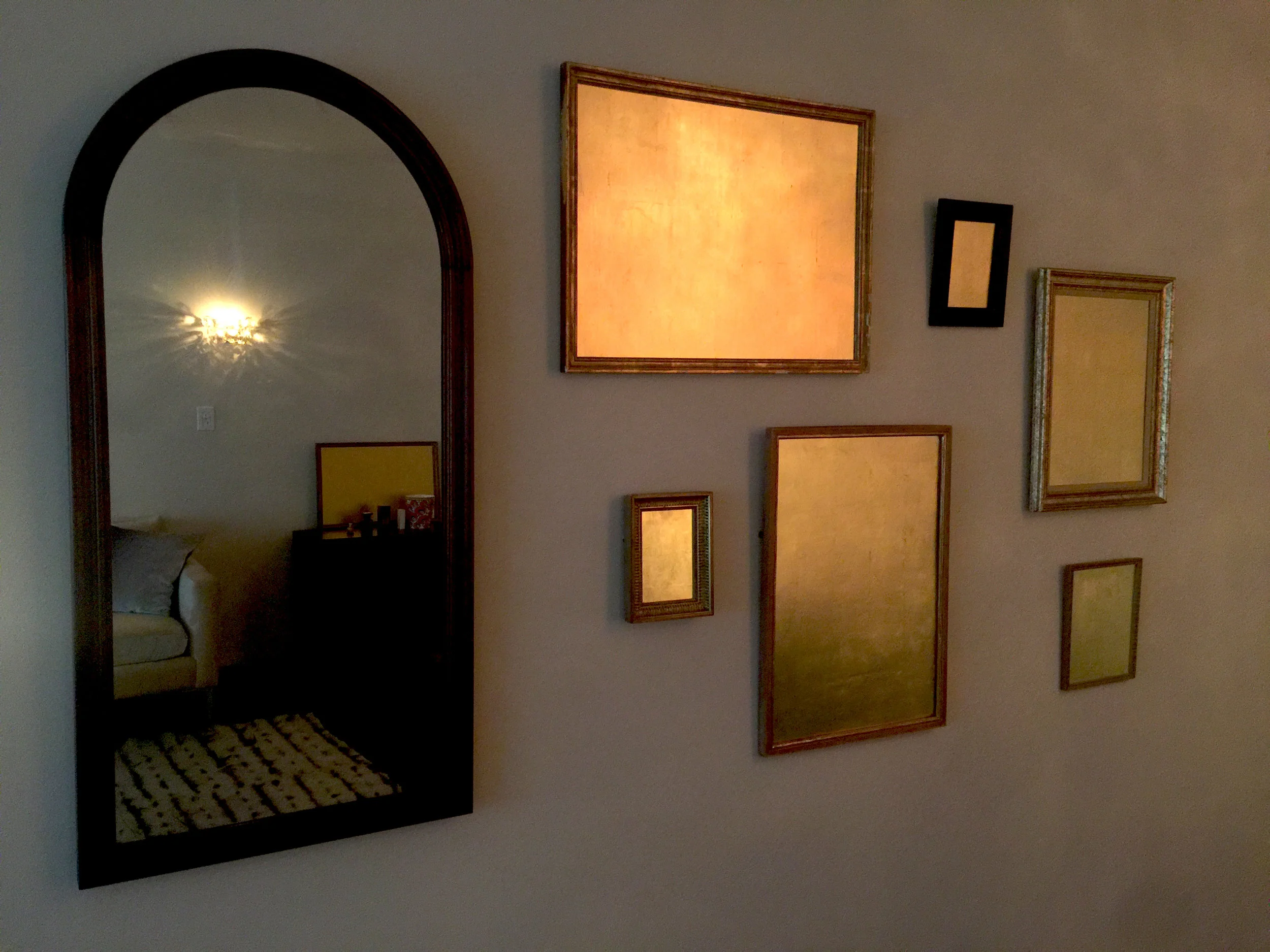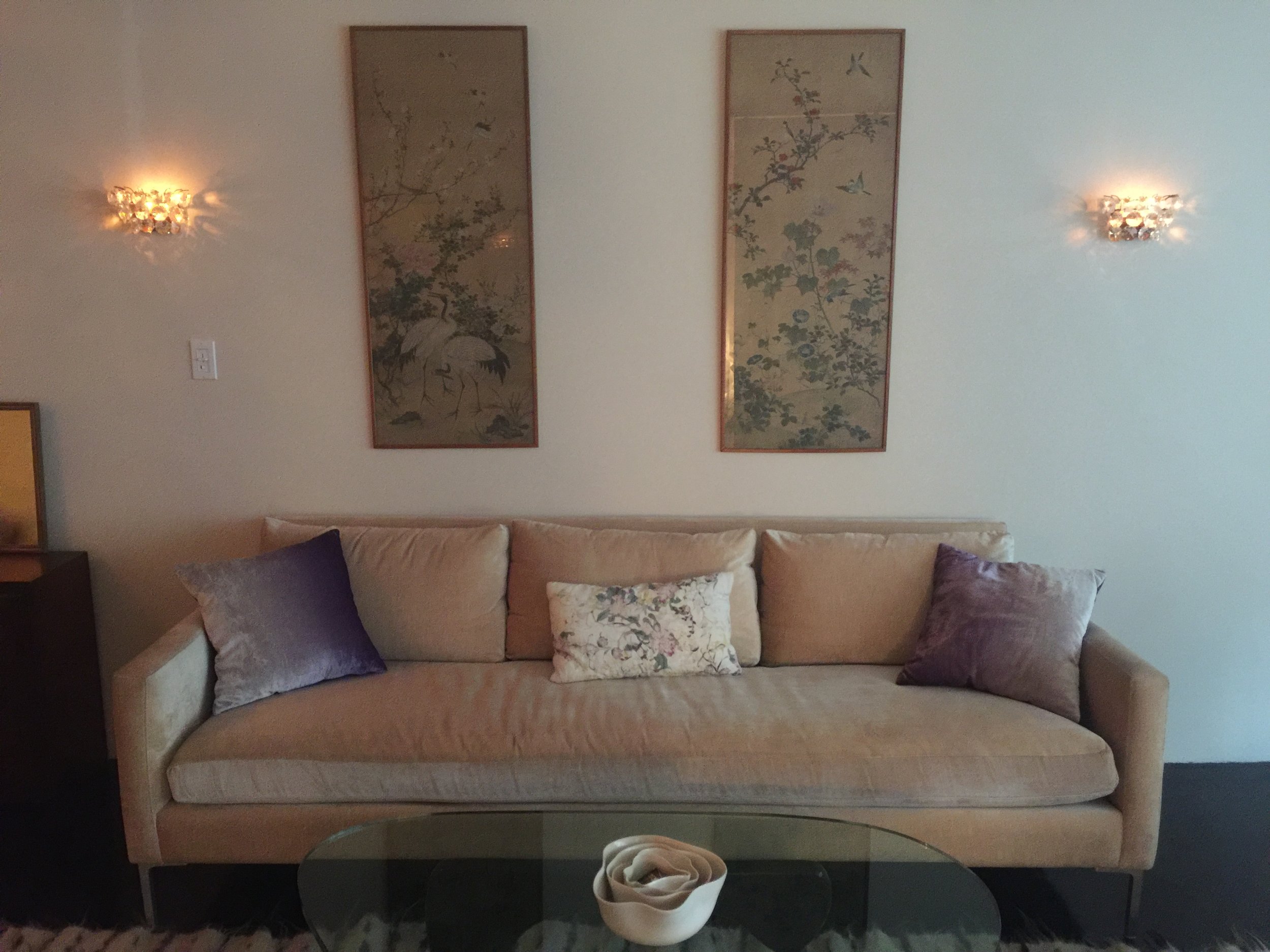





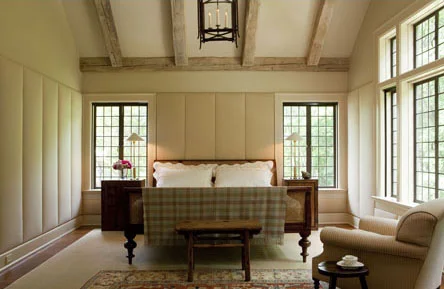
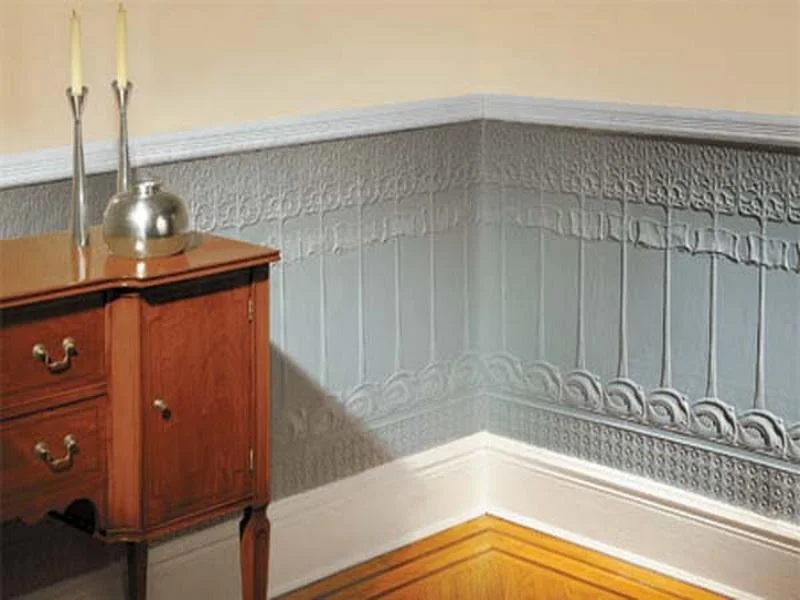



WALLS = function=art
"…his walls are his theater…" ~ Elsie de Wolfe
WALLS = function=art
"…his walls are his theater…" ~ Elsie de Wolfe
WALLS = function
We could not live without our literal and figurative walls. They are the BIG picture - holding together each room they envelope. They support the structure of the building by linking floor to ceiling. Walls are not only our partition between rooms, they insulate us from the outside world. Where would we be standing without our walls?
Could we ask for anything more from a wall? Well, yes we can. Within each room, the wall serves not only as enclosure, it also links us to other areas. We pierce them to make windows, doors and occasionally fireplaces. These openings facilitate both our passage and inter-connection.
WALLS = art
Onto the walls our design we latch our aesthetics. We layer our objects onto, off or through the wall to add both interest and function to our rooms. These objects include mantles, door and window frames, bookshelves and cabinets for storage space, sconces, mirrors, flat screen TVs, paintings and other objects that we collect and want to showcase for our own pleasure as wells as others.
Bookshelves and cabinets become features resting on or inset to the wall.
Sir John Soane, an 18-19thC English architect and the son of a bricklayer, worked those walls. His father’s trade and his own calling gave him the gift of being super aware of the wall and it’s function.

New Page
Elsie de Wolf’s wallpaper motif rides up the wall right onto the ceiling. They are broken up only by mirrors that magnify and reflect the pattern back into the room, augmenting its grandeur.
New Page
Elsie de Wolf’s wallpaper motif rides up the wall right onto the ceiling. They are broken up only by mirrors that magnify and reflect the pattern back into the room, augmenting its grandeur.
Walls can either keep the room alive or send it to its doom
What becomes part of the wall, what goes on the wall or rests against the wall is theater for the room. A good theatrical arrangement moves the eye to want to continue to visit various locations.
The opening shot is of RUSSELL WRIGHT’s living room. Back in the in the 1950’s he gleefully played with boulders found on his property; placing them on the wall, in the wall, off the wall, pouring them onto the floor and around his fireplace. (MANITOBA - Westchester, NY)
New Page
pots and pans
New Page
pots and pans
The artist Bernard Childs knew his craft and let it speak through him to enhance his furnishings. Because he was familiar with etching (cutting an image into a copper plate, inking the plate and transferring the image – in reverse - onto paper) he could take his common , everyday looking copper cooking pan and emboss a beautiful design into it (link Chelsea Hotel).
Although we are rarely able to go to this extent, we owe it to ourselves to develop a dialogue of dynamic engagement with our surroundings. A way to continually see anew and connect our objects to our space. As we develop the scope of our unique vision, it opens our hearts and minds to endless possibilities.
Here’s a different kind of metal sculpture that enhances the wall - a Mid Century wall sculpture I snapped a shot of at 1stdibs showroom in Manhattan.

in the wall
In the Wall
Looking at examples of ‘On the Wall’ and embracing the expression ‘Off the Wall’, what’s left is one of my favorites, ‘In the Wall’: featured objects that are recessed and specifically lit.
~
A lobby in Mid-town Manhattan
in the wall
In the Wall
Looking at examples of ‘On the Wall’ and embracing the expression ‘Off the Wall’, what’s left is one of my favorites, ‘In the Wall’: featured objects that are recessed and specifically lit.
~
A lobby in Mid-town Manhattan
Stones recessed into the wall in a private home in Washington State.
From ordinary to extraordinary
Do we break all the rules of Elsie de Wolfe when she states:
“The wall is the background of the room, and so must be flat in treatment and reposeful in tone.”
This statement and her opening statement about walls being theater seem at first glance to be a huge contradiction. But perhaps we can have it all. Can’t we balance the restful with the dramatic by featuring objects such as lit rocks and shattered glass recessed into the wall? Can you see one wall in the room with a a hand painted mural or wallpaper, maybe a textural wall hanging, or the placement of objects creates a pattern with books, collectibles, mirror groupings, a set of candelabras or staggered artwork. We seem only to be limited by our imagination (link pat pat pattern).
I gutted an old hamper unit that was partially inset and made an alcove in my bath/shower area to gain space and variety from the mundane of 4 straight walls.
One feature wall can turn an ordinary room into something quite extraordinary.

RW2 + YP
Roman + Williams @ The Guild
Soho, NY
Although their store is known more for its ground floor home goods and elegant dining, a treasure awaits as you descend the stairs and enter a series of rooms below grade.
RW2 + YP
Roman + Williams @ The Guild
Soho, NY
Although their store is known more for its ground floor home goods and elegant dining, a treasure awaits as you descend the stairs and enter a series of rooms below grade.
Here are some extraordinary wall features created by Yabu Pushelberg.
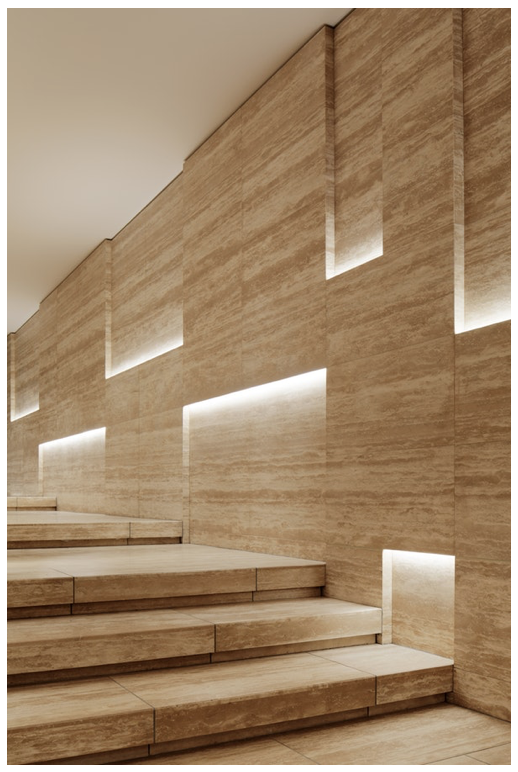
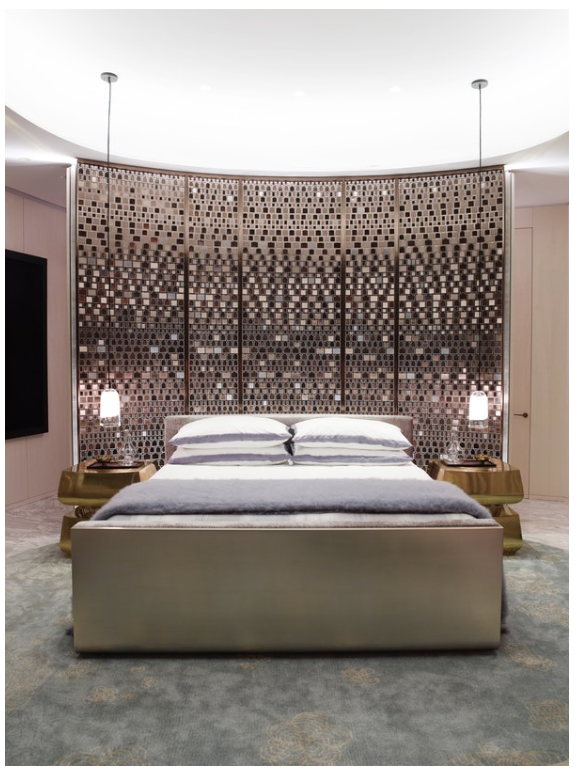
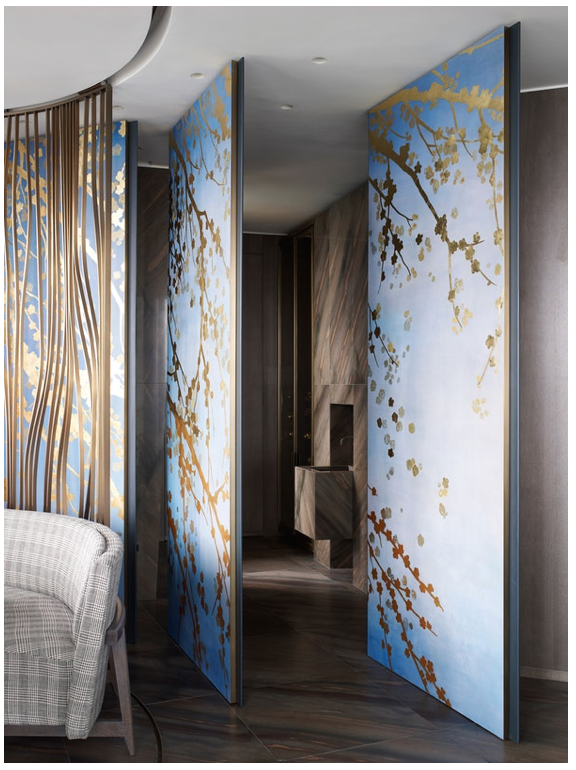
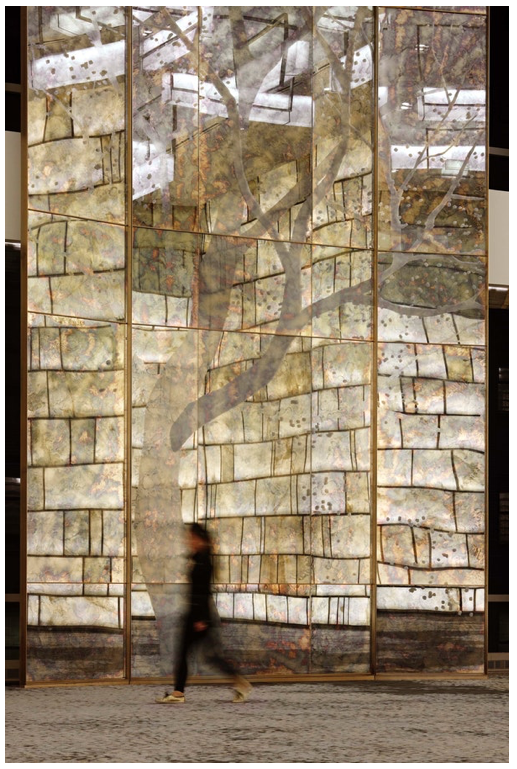
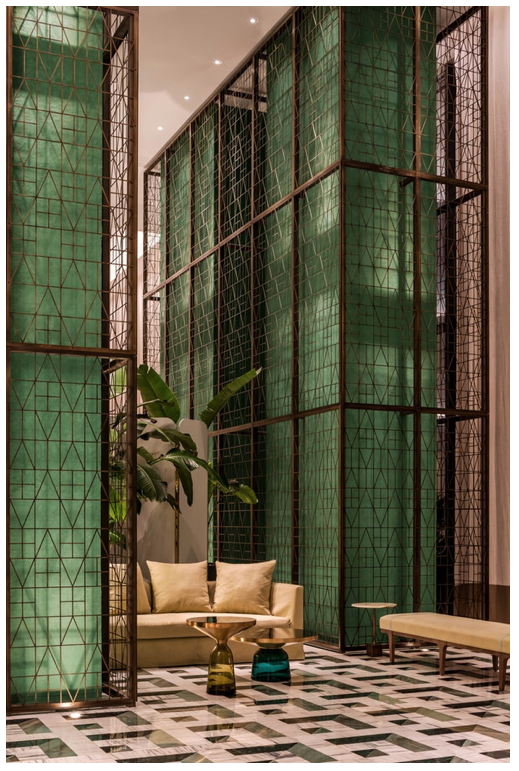

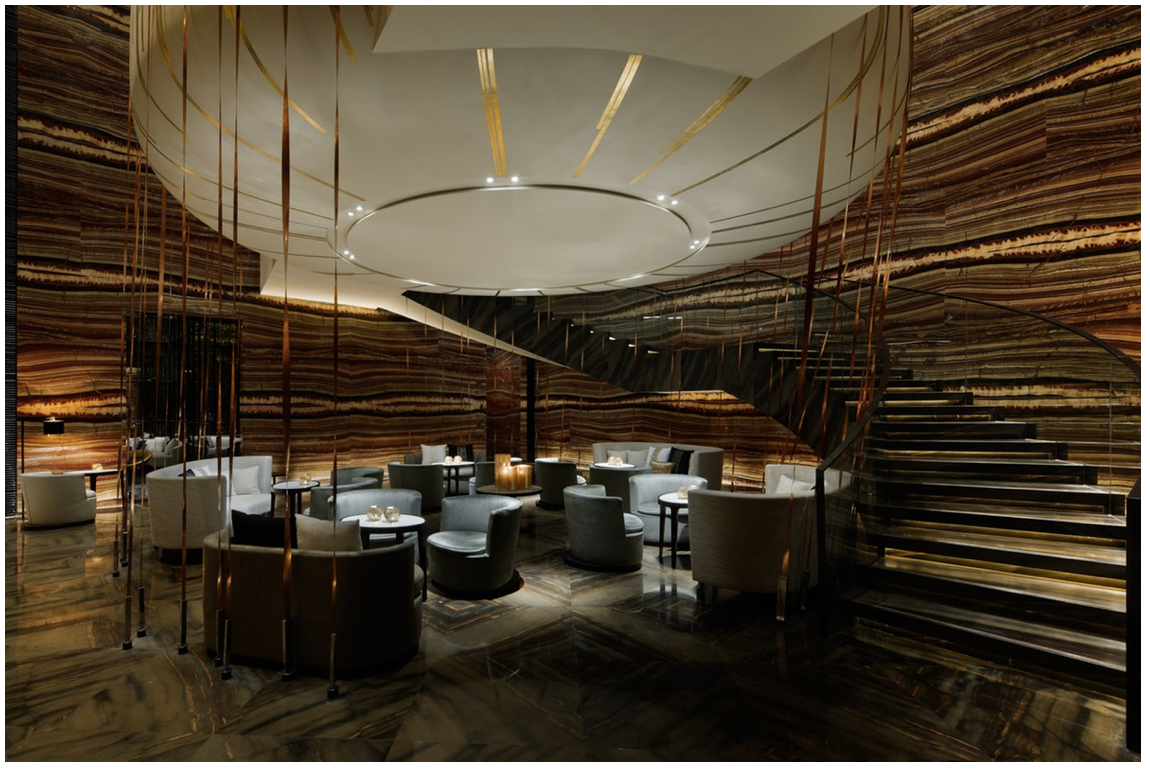
ADORNING THE WALLS/trompe l’oeil
If we place either a wallpaper pattern or a painted scene on a wall, it transports us to another dimension. And if the scene looks and feels so real we can enter into it like Alice in Wonderland, this is trompe l’oeil - trick the eye. By painting the surrounding walls one of the colors from this feature wall, it creates a restful counterbalance.

William Morris/Voysey/GP Wallpaper
And then there is William Morris’ wallpaper
William Morris/Voysey/GP Wallpaper
And then there is William Morris’ wallpaper
A great resource for ‘to-die-for’ Arts and Crafts wallpaper that is produced in the United States is trustworth This link will take you to one of their more humorous papers called Alice in Wonderland.
CFA Voysey design
If you’re looking for something a bit less buzzy and busy please visit our website (Groundplans Wallpaper) to view the wallpapers I’ve produced. These papers are made in the USA.
The paper on the left is called Bling. Why not add a little bling in your life? Here’s a room setting with the design Birds in Flight.
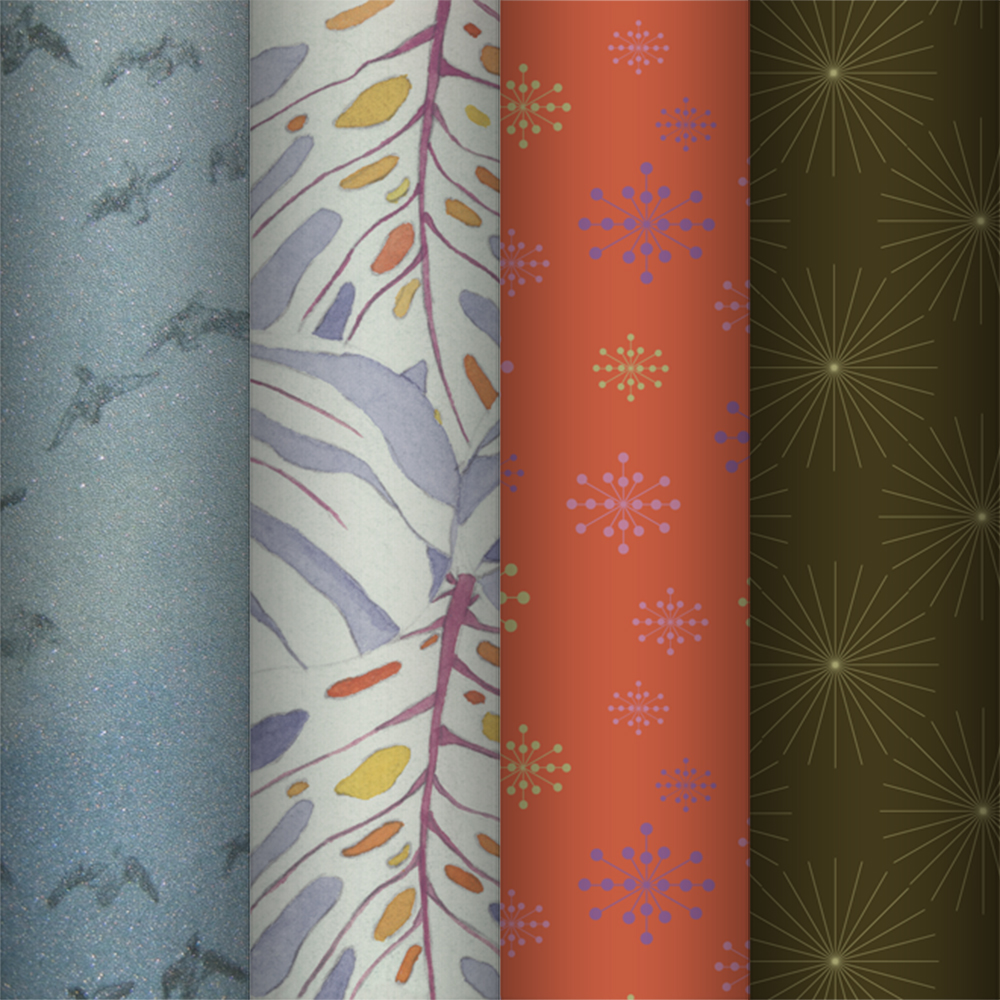
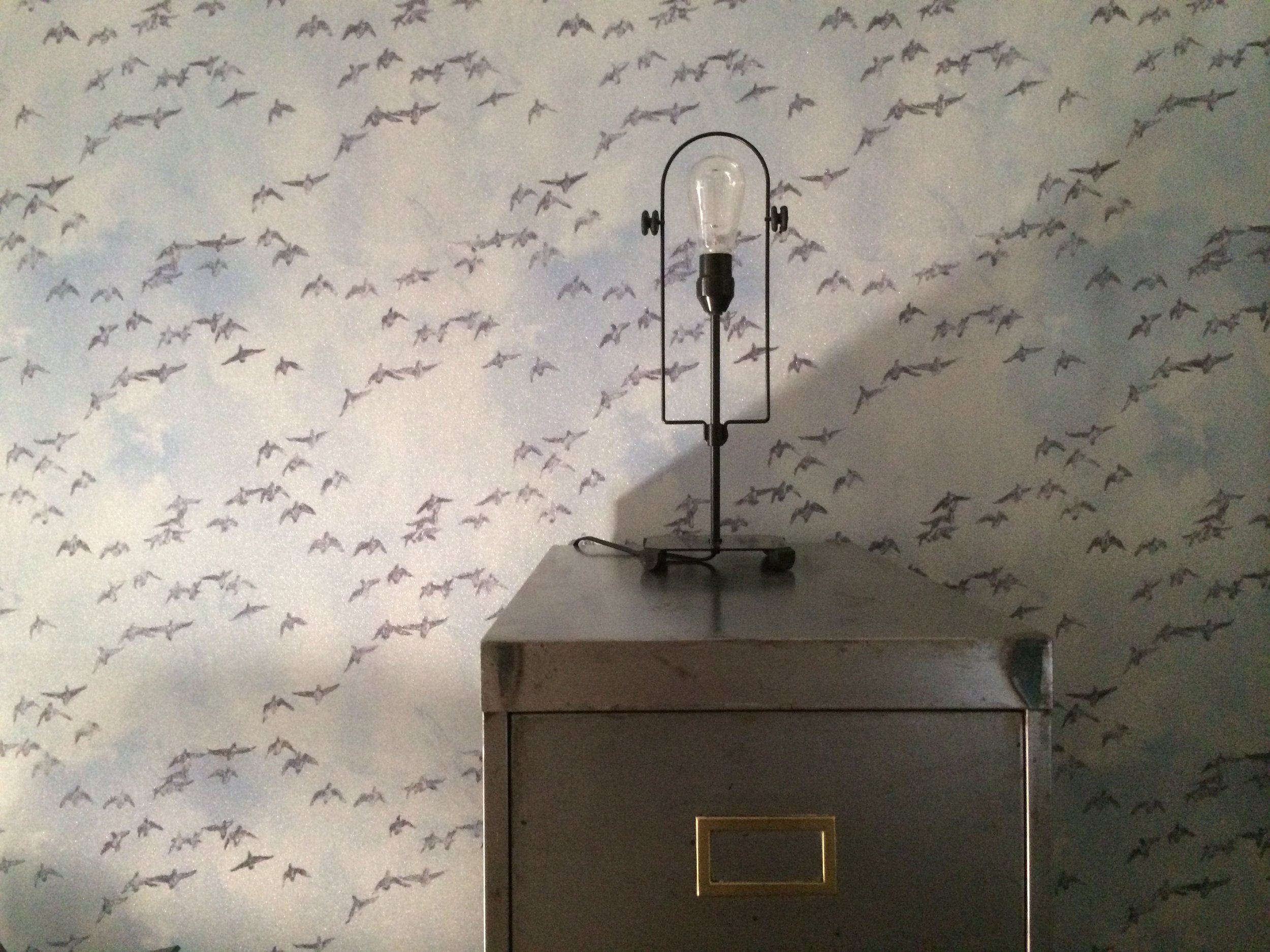

Stencilled wallpaper
Robert Courturier Inc is a master of wall coverings. And with this particular stencil he leads the eye up, around and back down to eye level.
Stencilled wallpaper
Robert Courturier Inc is a master of wall coverings. And with this particular stencil he leads the eye up, around and back down to eye level.
STENCILING the WALLS
A stenciled wall pattern by one of the contemporaries of William Morris (the founder of the Arts and Crafts Movement in England), a fellow English person, Margaret MacDonald. She is known for her work with her well known architect and furniture maker husband, Charles Rennie Mackintosh. They not only adorned their walls with this stenciled pattern but also went for having a go at the light fixtures as well.
Margaret MacDonald/Charles Rennie Mackintosh
Another
great
resource
for
handprinted
paper
is
Galbraith + Paul.

BNO Padded Walls
PADDING THE WALLS
Fabric is a great sound barrier, especially when padded. This feature is especially helpful in restaurants since several people speaking at the same time often sounds like noise. The padded fabric in this bedroom not only absorbs sound, it adds a sense of intimacy to the room.
BNO Design ~Antoine Bootz photo
BNO Padded Walls
PADDING THE WALLS
Fabric is a great sound barrier, especially when padded. This feature is especially helpful in restaurants since several people speaking at the same time often sounds like noise. The padded fabric in this bedroom not only absorbs sound, it adds a sense of intimacy to the room.
BNO Design ~Antoine Bootz photo
FABRIC CUSHIONING THE WALL ADD TEXTURE in a Park Ave lobby/office. Here’s a link to the expertly crafted padded wall of the Jean Paul Gaultier store designed by Philippe Starck (link Jouffre).
Sea life is arranged on shelves that line the walls of this bathroom. Elle Décor, Margaret Russell.
the fluidity of nature
Highlighted in SCALE (link Scale) A nod to the NOVOGRATZ’s. I can’t imagine the room without this simple wall hanging. Not only does the hanging add an element of color, pattern and texture - it brings nature’s fluidity into a room.

walls in period rooms
PERIOD ROOMS…should we be lucky enough to find ourselves in one
Relief stenciling on wainscoting. The motif stays at waist height. That’s all we need to give the room a visual interest it wouldn’t otherwise have.
~
Whatever the height and size of the room we find ourselves in, a respect for the original proportions of the room will be the right fit because they carry the blueprint of the original architect’s intentions.
walls in period rooms
PERIOD ROOMS…should we be lucky enough to find ourselves in one
Relief stenciling on wainscoting. The motif stays at waist height. That’s all we need to give the room a visual interest it wouldn’t otherwise have.
~
Whatever the height and size of the room we find ourselves in, a respect for the original proportions of the room will be the right fit because they carry the blueprint of the original architect’s intentions.
Before our modernist period, wall moldings, ceiling moldings and chair rail (link Going Green) were used not just to enhance the wall space but to break up and define an area where a painting hung. These delineations were used as architectural features when ceiling heights were higher than today.
This sense of elegance changed post WWII with the building of modern apartments; the ceiling height dropped and smaller sized rooms were constructed while buildings became grander. Innovative construction materials helped moved this along (link Building Blocks 2).
Once we could build taller, developers wanted to maximize their investment by packing as many apartments as they could under the same roof. With these proportional changes, moulding and wainscoting ill fit the overall look and budget.

Mt Harmon Plantation gilded walls
GILDING CATCHES THE LIGHT
Beautiful, golden wallpaper rides up the stairwell in this historic home
Mount Harmon Plantation
Mt Harmon Plantation gilded walls
GILDING CATCHES THE LIGHT
Beautiful, golden wallpaper rides up the stairwell in this historic home
Mount Harmon Plantation
The sconces are made to look like the original candelabras that would have been lit by flames and hung in those spots to help bring luminosity for navigating the stairs. They also reflect onto the wallpaper to give an increased overall illumination for this main passageway (Link Light).
Wallpaper with a reflective surface is placed in a low light, small bathroom at IRON GATE Restaurant, Washington D.C.

studio walls
When an art collector came to my apartment several years ago he asked why I didn’t have paintings on the wall. I really didn’t know how to respond. Was it my Zen aesthetic? Had I not found anything I liked? Or was I simply not focusing my attention on the walls?
Once I was made aware of this supposed lack, I set out to transform the space.
studio walls
When an art collector came to my apartment several years ago he asked why I didn’t have paintings on the wall. I really didn’t know how to respond. Was it my Zen aesthetic? Had I not found anything I liked? Or was I simply not focusing my attention on the walls?
Once I was made aware of this supposed lack, I set out to transform the space.
Without a painting the focus was on the table so I got started changing all that.
I also wanted to add luminosity and brighten up a blank wall not getting natural sunlight, so I conceived of and executed an unbeknownst to me time consuming gold leaf project. Taking a bunch of old beat up frames that I’d bought from an interior design client/friend at her garage sale for all of $10, I proceeded to get wood cut the size of each frame and gold leafed each of them. Making the project that much more arduous, I first gilded in fake gold leaf but due to its need for an overglaze that didn’t look good, I gilded over them with the real deal - GOLD.
The mirror is an antique I salvaged from my mother’s beach house. I then placed a chandelier + sconces I’d found at an outdoor market in the south of France and hung my Aunt’s artwork - she had studied with Hans Hoffman in Provincetown - under the chandelier area. Lastly, I brought in 2 pieces of framed art from a 17C Japanese screen that depict the seasons.

